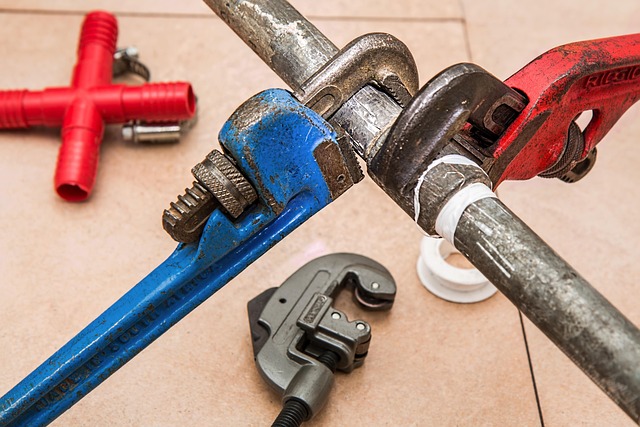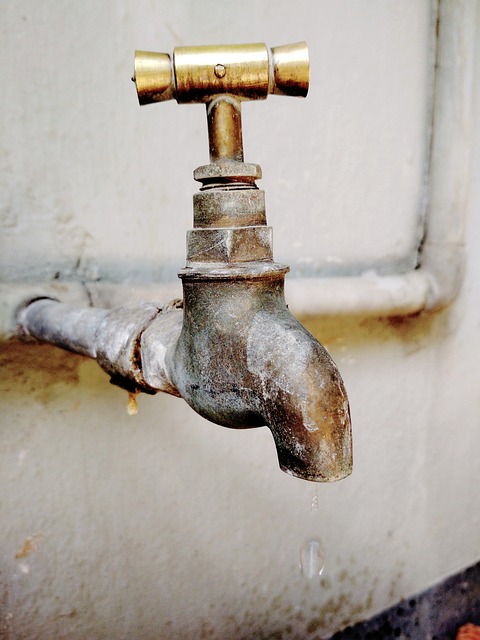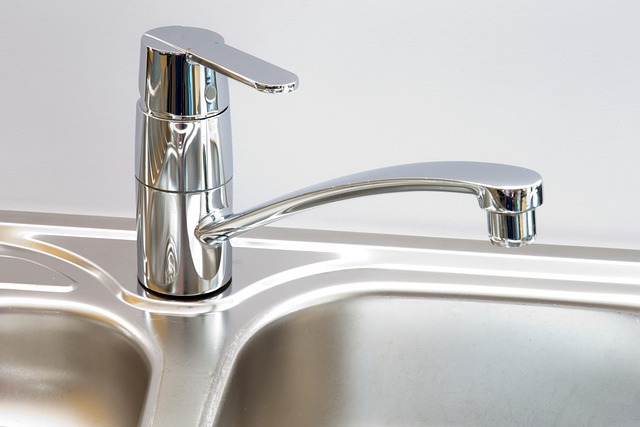A leaking water heater can cause significant damage unnoticed. Look for early signs like unusual noises, moisture stains, or water pooling. If suspected, immediately contact emergency plumbing services (EPS) to prevent extensive water damage and high repairs. Before EPS arrives, turn off the water supply and evacuate valuable items. Follow these immediate steps to mitigate damage until professional help arrives. EPS specializes in swift leak assessment, location, and resolution, minimizing water damage potential with temporary repairs, drainage, and containment measures for 24/7 protection.
Are you prepared for a potential plumbing disaster? A leaking water heater can quickly turn into a flood, causing extensive damage. Recognize the warning signs early: discolored water, persistent leaks, or unusual noises. Before it escalates, take immediate action. Turn off the valve and drain the tank if safe to do so. If the issue persists, emergency plumbing services are crucial. These professionals can assess, repair, or replace your water heater, minimizing flood risk and restoring your home’s safety and comfort.
- Recognizing the Signs of a Leaking Water Heater
- Immediate Steps to Take Before Professional Help Arrives
- Preventing Flood Damage: What Emergency Plumbing Services Can Do
Recognizing the Signs of a Leaking Water Heater

A leaking water heater can be a subtle issue, often going unnoticed until it’s too late. Recognizing the signs early is crucial to preventing a potential flood. Keep an eye out for any unusual noises coming from your water heater, such as dripping or splashing sounds, which could indicate a leak. Additionally, check for moisture or water stains around the base of the unit and on nearby walls or floors. If you notice water pooling or signs of corrosion, it’s time to take action.
Don’t delay; contact emergency plumbing services if you suspect a leak. Prompt attention can save you from extensive water damage and costly repairs. Remember, regular maintenance and inspections are key to catching potential problems early, so don’t hesitate to reach out to professionals who specialize in these emergencies.
Immediate Steps to Take Before Professional Help Arrives

If you suspect a leaking water heater, act swiftly before it escalates into a flooding crisis. Here are immediate steps to take while waiting for professional help:
1. Turn Off the Water Supply: Locate your water shut-off valve, typically found near the water heater or in your home’s utility area. Close the valve to prevent further water from entering the tank and spreading potential damage. This is a crucial step to mitigate flooding once you identify the leak.
2. Evacuate and Protect: Clear any valuables or furniture from areas that might be affected by water. Move items to higher ground to avoid damage. Spread towels or plastic sheets around the heater to absorb excess water and prevent it from spreading throughout your home, especially if the leak is substantial.
Preventing Flood Damage: What Emergency Plumbing Services Can Do

When a water heater starts leaking, it’s crucial to act swiftly to prevent potential flood damage. This is where emergency plumbing services play a vital role. These professionals are equipped and trained to handle such situations promptly, minimising the risk of extensive water damage. They can assess the issue, locate the source of the leak, and implement effective solutions to stop the flow of water before it turns into a disaster.
Emergency plumbers offer a range of services beyond fixing leaks. They can also provide temporary repairs, ensure proper drainage, and set up containment measures to protect your property from further harm. By calling in these experts, you gain access to round-the-clock assistance, ensuring that any water heater leak is addressed efficiently, preventing costly renovations and the hassle of dealing with a flooded home.
If you’ve identified a leaking water heater, it’s crucial to act swiftly. Before professional help arrives, take immediate steps to contain the leak and prevent potential flooding. Turn off the water supply valve and drain excess water safely. These quick actions can significantly mitigate damage and give emergency plumbing services time to assess and repair the issue effectively. Remember, prompt action is key in minimizing flood damage and ensuring a smoother restoration process.
